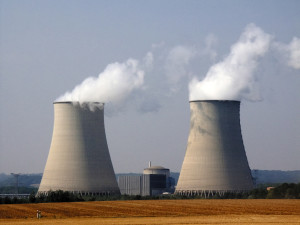 Many people wonder is nuclear energy renewable, however, it is not. Although it’s not a renewable energy source, it’s far from the end of the discussion. Nuclear power has incredible potential, as well as incredible dangers. It has very definite advantages that make it worth considering compared to other sources of energy. It also has drawbacks that are quite unique.
Many people wonder is nuclear energy renewable, however, it is not. Although it’s not a renewable energy source, it’s far from the end of the discussion. Nuclear power has incredible potential, as well as incredible dangers. It has very definite advantages that make it worth considering compared to other sources of energy. It also has drawbacks that are quite unique.
Basic Principles
Nuclear power is, in principle, very simple. Purified radioactive elements – most commonly uranium, but the process can use others – are assembled carefully in an arrangement that allows controlled fission. As atoms split apart, they release heat and neutrons. The heat is captured and used to turn water into steam, and the steam drives generators. The reason nuclear power shows up on lists of “clean” energy sources is because the byproducts released by a well-designed, well-maintained nuclear plant are minimal. It’s true that nuclear power produces radioactive waste, but the volume of waste involved is usually vastly over-stated. Storing and disposing of it safely is a real problem, but not an insurmountable one.
The Limitless Potential
The real appeal of nuclear power is in its great efficiency. Over the past sixty years, it’s been discovered that uranium is a relatively common element within the earth. The process required to refine it and prepare it as nuclear fuel has also been streamlined and made as efficient as possible. The efficiency of nuclear power comes into play because of just how little uranium is required to run a reactor. The electrical needs of an average household can be sustained for a year by just a few grams of uranium.
Clean, But Not Renewable
As mentioned above, radioactive waste is a problem that can be dealt with. When operating within normal parameters, a nuclear power plant releases virtually no contaminants into the environment. This sets it apart from all the other non-renewable energy sources currently in use. However, because there is an inevitable limit to the amount of uranium available, nuclear energy cannot be considered renewable in the same way that solar or wind power are.
The Very Real Risks
Notice the qualifiers required above in discussing the safety of nuclear power. A well-maintained reactor is safe and a well-designed reactor will not melt down. A nuclear power plant releases no contaminants when it’s run properly. The problem that nuclear power advocates can’t avoid is that when things break down with nuclear power, they break down in a very frightening, very disastrous way. Whether it breaks down to poor design, such as at Three Mile Island or because of negligence as at Chernobyl or even through natural disaster like at Fukushima, a malfunctioning reactor can spread radiation into the environment and cause a serious long-term health risk. Additionally, in the modern age, it cannot be denied that nuclear power presents a security risk. While it would be difficult for terrorists to cause a serious breakdown, stealing potentially-harmful waste and fuel is a threat that calls for constant vigilance.
So, is nuclear energy renewable? No, not really and it has more than its fair share of other drawbacks. Yet still, it is such an efficient source of power that it deserves careful consideration. To meet the ever-growing needs of an ever-growing civilization, nuclear power remains a viable option, just not an ideal one.